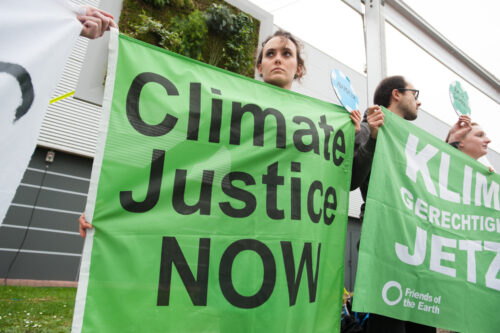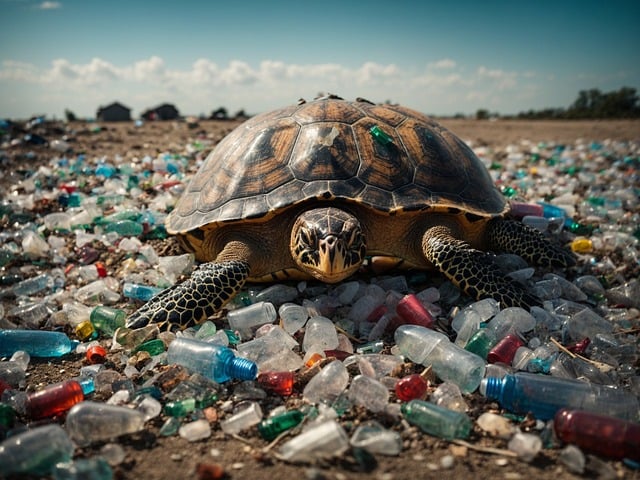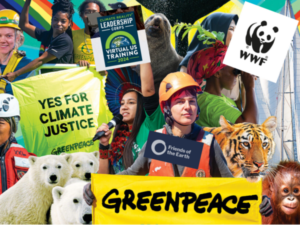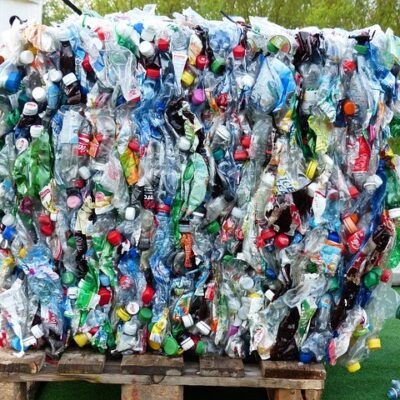Climate Justice: What is it? Why do we want it? How do we get it? The climate crisis is affecting every corner of the globe. From wildfires and rising sea levels to severe storms and droughts. But, while the consequences of global warming are felt by all, the burden is not equally shared.
This is where the concept of climate justice comes in. Climate justice is about addressing environmental issues but it’s about much more.
It’s also about recognizing and rectifying the inequalities that climate change makes much much worse. But what exactly does it mean? Why is it important? And how can we achieve it?
What is Climate Justice?
At its core, climate justice is the idea that those who have contributed the least to climate change should not bear the greatest burden of its impacts. It acknowledges that climate change is not only an environmental issue but also a human rights issue, one that disproportionately affects vulnerable populations, including low-income communities, people of color, Indigenous peoples, and those living in the Global South.
While industrialized nations and wealthier individuals have historically contributed the most to greenhouse gas emissions, the poorest and most marginalized communities are often the most affected. These groups may lack the resources to adapt to the changing environment, whether through relocation, improved infrastructure, or sustainable agricultural practices.
These groups may also face the most severe impacts, such as health risks from polluted air, water scarcity, displacement due to extreme weather events, or the loss of livelihoods tied to natural resources.
Climate justice is about balancing the inequities by ensuring that climate action is fair, inclusive, and accountable to those who are most vulnerable. It also emphasizes the need for financial support and resources for climate adaptation, mitigation, and loss and damage.

Why Do We Want Climate Justice?
Climate justice is essential because the fight against climate change cannot be separated from the fight for equity and human rights. There are several compelling reasons why we must make climate justice a top priority:
- Protecting Vulnerable Communities: As mentioned, marginalized groups are often the hardest hit by climate change. Climate justice ensures that these communities are not left behind in the transition to a more sustainable world.
- For example, many Indigenous peoples have deep relationships with their lands and ecosystems, and their traditional knowledge is crucial in combating environmental degradation. Climate justice recognizes and supports their right to protect their territories and culture.
- Promoting Global Fairness: The wealthiest nations have been responsible for the majority of historical emissions. Yet, many of the nations most affected by climate change, particularly in the Global South, have contributed very little to the problem.
- Climate justice pushes for a more equitable distribution of responsibility for climate action, requiring wealthier nations to provide financial support and share technology with those on the frontlines of the crisis.
- Driving Long-term Change: Climate justice goes beyond quick fixes by focusing on creating a sustainable, just future. Addressing climate change through a justice lens means integrating social, economic, and environmental solutions that benefit all, ensuring that future generations inherit a livable planet.
- It calls for sustainable economic models that don’t exploit people or the environment, such as green jobs, renewable energy solutions, and community-based resilience strategies.
- Upholding Human Rights: Climate justice is fundamentally a human rights issue. It demands that individuals’ right to health, food, water, and shelter be protected from the impacts of climate change.
- For example, when communities face rising sea levels or droughts, their right to live in a healthy environment is violated. A climate justice approach holds governments and corporations accountable for protecting these rights.
How Can We Achieve Climate Justice?
Achieving climate justice has many moving parts, requiring global collaboration, local action, and systemic change.
Here are some key steps to move towards a more just and sustainable world:
- Acknowledging Historical Injustices and ongoing injustices caused by colonization, exploitation, and environmental degradation.
- Developed nations, particularly those that have industrialized and contributed to the majority of greenhouse gases, must take responsibility for their past actions and support the global community in adapting to climate change.
- Supporting Climate Adaptation and Resilience are crucial for helping vulnerable communities cope with the inevitable impacts of climate change.
- This includes building resilient infrastructure, supporting sustainable agriculture, improving access to clean water, and creating early warning systems for extreme weather events. A focus on social justice ensures that these solutions are tailored to the needs of marginalized communities, including Indigenous peoples and low-income groups.
- Ensuring Equity in Climate Policy: As governments create policies to address climate change, they must ensure that these policies are equitable and inclusive. They must:
- Include integrating diverse voices into decision-making processes, particularly those of communities who are most affected by climate change.
- Prioritize policies that reduce inequality, such as promoting fair labor practices, creating green jobs, and ensuring universal access to renewable energy.
- Financial Support for Loss and Damage from the irreversible consequences of climate change that cannot be mitigated.
- Wealthier nations should provide financial support to countries suffering from the impacts of climate change, including compensation for loss of livelihoods, homes, and ecosystems. The establishment of a global fund to support these efforts is one way to ensure fairness and accountability.
- Empowering Local Communities to find their best solutions.
- Supporting grassroots initiatives, promoting community-led renewable energy projects, and amplifying local voices ensures that climate solutions are not top-down but emerge from the needs and aspirations of the people most affected.
- Organize groups to publicize the goals like Mothers Against Air Pollution and using petitions by environmental groups like Greenpeace, WWF, and Friends of the Earth.
- Creating the Required Global Solidarity. While individual actions like reducing carbon footprints and supporting green policies are important, we must also push for systemic change at the global level.
- International climate agreements, such as the Paris Agreement and Global Plastic Treaty play a crucial role in ensuring that nations are held accountable and work together to combat climate change.

Sign the Petition to Help Cut Toxic Plastic Out of Their Lives
Tell Supermarkets Stop Selling Dangerous Plastics That Hurt Your Loved Ones
Conclusion
Climate justice is essential to address the climate crisis in an equitable, and inclusive way. We need to think beyond environmental sustainability and to consider the social and economic implications of climate change.
When we prioritize the needs of vulnerable communities, recognize historical inequities, and ensure that climate policies are fair and inclusive, we all win a more just and sustainable future.
We need to work together on a local, national, and global scale. It will require bold action, collective responsibility, and a commitment to fighting not only for a better environment but for a more just society.
The time for climate justice is now, and it is a vision that we must strive toward for the sake of our planet and the generations to come.
Latest posts
-

Air Pollution ‘Fighting Tools’
Use these Air Pollution Fighting Tools in your fight against air pollution and when fighting for climate justice. Instead of just telling folks there’s bad air around, now you can show them. Use powerful maps and tools that can show what type of emissions are present and their sheer volumes pouring our of these site.…
-

Insulate Your Home for Health and Planet
Insulate Your Home for Health and Planet and you reap the benefits like cost savings, cleaner air for your community and better health. Calculate Potential Savings From Insulating You could have significant savings on your energy bills when you insulate. Depending on your home your savings could more than cover the cost of your insulation…
-

Climate Justice: What is it? Why do we want it? How do we get it?
Climate Justice: What is it? Why do we want it? How do we get it? The climate crisis is affecting every corner of the globe. From wildfires and rising sea levels to severe storms and droughts. But, while the consequences of global warming are felt by all, the burden is not equally shared. This is…







